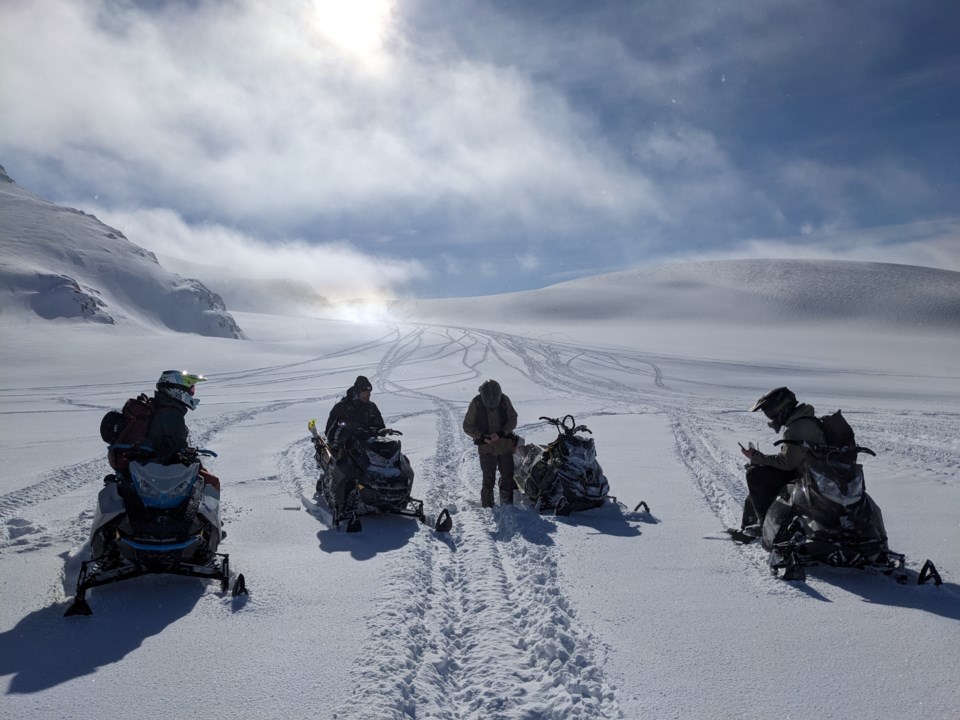One reality of the active Whistler lifestyle is taking your turn to sit out a few rounds. From the pro athletes who make everything look easy to the rank-and-file recreationists who barely get more time on their toys than the weekend warriors, there comes a time when it all catches up with you. An injury isn’t just an annoying inconvenience. Around here it’s an inevitability.
I’m currently in my fourth week of wearing an arm sling. The first question my friends and neighbours ask is: “What happened?” or “What did you do (this time)?” Rather than answer with the typical Whistler story of “I was trying this cool thing,” I tell them, “This was scheduled surgery. I’m really happy that I got it.”
People tend to associate surgeries with catastrophic injuries from crashes and collisions, ones that require bone-setting, ligament-fixing and maybe a plate or two screwed in to hold it all together. And that happens every day in Whistler, as you’ve probably witnessed if you’ve spent any time at all in the Whistler Medical Clinic Emergency Room. But for the maturing Whistler lifer, there’s also the type of injury that accumulates over months or years. In my case, it’s my shoulders.
I’ve had a wonky left shoulder since I was a kid, an unfortunate genetic trait handed down from my grandfather on my mother’s side of the family. My mom and my uncles have it, as do my brother and the majority of my cousins on that side of the family. For some of them, it meant surgeries of their own, and having to quit their weekend rugby or basketball games for good. For others, it meant a careful lifestyle of not putting their shoulders into vulnerable positions such as diving off a boat or even vacuuming under furniture.
I was more or less making it work with my shoulder the first few years in Whistler—until I started riding the Whistler Mountain Bike Park. After a painful first season, I was determined not to let my body hold me back from enjoying my favourite double-black trails, so I put myself on the orthopaedic surgeon’s waiting list to get my labrum stitched back to where it belongs. That was 12 years ago.
In the spring of 2022, my enthusiasm for jumping back on the bike got the better of me. It was the opening week of the bike park, and the dirt was perfect. There were no lines, and I was railing berms thinking I was going to have the best season ever on my bikes. Then I came out of a berm with speed and lost control trying to cross the trail to ride a small side-hit jump. I came down with enough force to break my aluminum handlebar in two, and bruised every joint on my left side.
But I walked away from the crash. The damage did not become apparent until a week or so later, when I was rehabbing my left shoulder with a resistance band physio exercise and my shoulder dislocated with very little force. The ER doctor who put me back together that day shook her head at the X-rays and gave me an immediate referral to see my orthopaedic surgeon. Two MRIs and several months later, I was back on the operating table to fix the previous repair I’d managed to blow up from my sizable bike crash. On top of that, the second MRI revealed that it’s only a matter of time before my right shoulder starts having the same issues, so I received a recommendation from my surgeon to get that fixed this year as well, albeit a few months later so I don’t have to don dualling slings.
With the relatively long rehab times, these two surgeries mean I’m off my favourite activities of skiing and biking for the next eight months. This would have been devastating news 10 years ago, but I have a more optimistic view of it now. I’m 41 years old. If I can get another 15 years of relatively high performance out of my body, I’ll be happy. But I need these surgeries now in order to secure that future.
I’ve already come to terms with the idea that I’ve likely peaked in my recreation pursuits, at least in terms of how much risk I’m taking on jumps, drops and scary steep terrain features. But am I going to step back from my favourite trails and my recently-found diversion of snowmobiling? Hell no. But I do need to follow the example of the Whistler veterans in their 40s and 50s who are still able to give it some send on their days off. That means spending the time to rehab properly from my surgeries and prepare my body for the seasonal abuse it’s inevitably going to receive once I’m back. Until then, I’d better find some low-impact hobbies.
Vince Shuley is old enough to feel it but not old enough to stop. For questions, comments or suggestions for The Outsider email [email protected] or Instagram @whis_vince.




